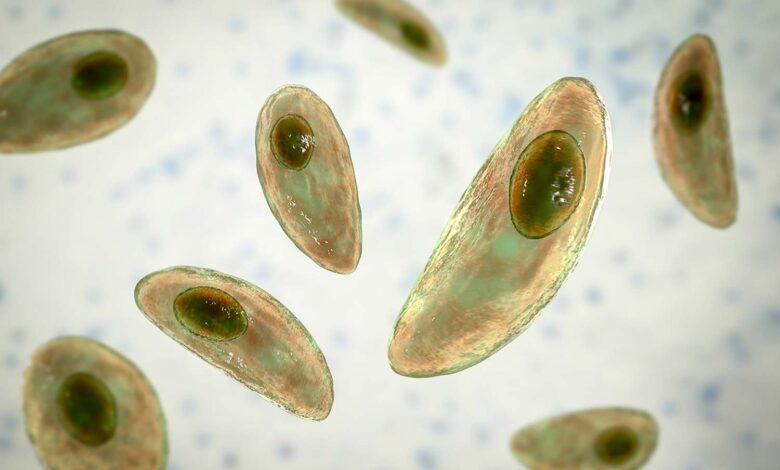Scientists have turned the famous mind-controlling parasite into a drug delivery system for the brain

A parasite called Toxoplasma gondii lives in the brain and other organs of about a third of the world’s population and can remain inactive or dormant in the body. Now scientists have controlled this microorganism to deliver drugs to the brain. However, this technique has not yet been tested on humans.
It is very difficult to deliver many drugs to the brain; Because this vulnerable organ is protected by a strong membrane called the blood-brain barrier. The blood-brain barrier allows only selected substances to pass through the bloodstream and enter its tissues. This barrier is particularly impermeable to large, water-absorbing molecules, including many proteins.
On the other hand, the single-celled parasite Toxoplasma gondii can easily cross the brain barrier. People usually become infected by ingesting the parasite, which then travels to the brain on its own or with the help of immune cells. Most people do not show any symptoms, but a small number may develop the disease.
The single-celled parasite Toxoplasma gondii can easily cross the brain barrier
Toxoplasma gondii is a parasite known for its ability to influence host behavior. In mice, it causes them to lose their fear of cats and is more likely to be caught. This, in turn, helps the parasite complete its life cycle in the cat’s body.
Some studies suggest that Toxoplasma gondii in humans may cause behavioral and personality changes, such as increased risk-taking, and is associated with mental health illnesses such as schizophrenia. This is why Toxoplasma gondii is sometimes referred to as a mind-controlling parasite.
In a study recently published in the journal Nature Microbiology, researchers modified the parasite Toxoplasma gondii to transport and deliver large proteins and packages of several proteins to brain cells. They have successfully tested this method in test tubes, laboratory mice, and small models of the human brain called brain pseudoorgans or brain organoids.
In 2013, the research team came up with the idea of using Toxoplasma as a drug delivery system. Shahar BrachaThe idea seemed almost unbelievable at the time, says lead author and postdoctoral researcher at MIT’s McGovern Institute for Brain Research. However, this parasite seems to have all the necessary features to solve the problem of drug delivery to the brain.
Transforming the parasite into a drug delivery system required years of research. During this time Bracha got his doctorate degree and with Lilac Shinerprofessor of parasitology at the University of Glasgow, worked closely together to engineer a potentially useful version of the parasite.
The experiments used two structures in the parasite: raptor, which injects proteins into cells from the outside, and dense granules, which secrete proteins from inside the cell.
Many years of research have been done to transform the Toxoplasma parasite into a drug delivery system for the brain
Raptors use a kiss-and-spit injection mechanism to deliver small amounts of protein to target cells. Dense granules can deliver larger amounts of protein more effectively. The researchers believe that with further refinement, the two delivery systems can be optimized and used for different purposes.
When the researchers injected the engineered parasites into mice, the mice did not get sick; But it does not mean that Toxoplasma gondii is always harmless. In humans, especially those with weakened immune systems, the parasite sometimes grows out of control, causing damage to the brain, heart, and eyes. It also poses risks to developing fetuses, potentially leading to severe problems such as blindness or brain damage.
But in general, Toxoplasma gondii is relatively safe for most people with healthy immune symptoms. About a quarter of healthy people around the world have antibodies in their blood that indicate they were infected with this parasite at some point. However, people with a weak immune system are at risk of severe disease when exposed to Toxoplasma.
The researchers noted that current strains of Toxoplasma gondii still have significant safety risks that need to be addressed. To advance the new technology, scientists must neutralize the parasite and make it as harmless as possible.









